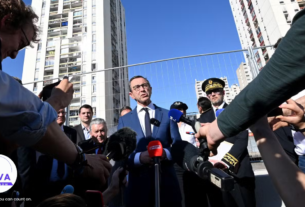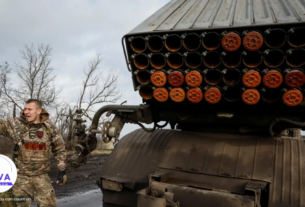NEW DELHI, INDIA Indian Defence Minister Rajnath Singh has issued a stark warning about the security of Pakistan’s nuclear arsenal, calling for international oversight of its management by the International Atomic Energy Agency (IAEA).
Speaking at a strategic defense forum in New Delhi, Singh questioned the safety of nuclear stockpiles in what he described as a “rogue nation with a history of instability and terror links.” His comments have triggered widespread diplomatic discussion and reignited regional security tensions.
“It is time the world asks: Are we safe knowing nuclear weapons are in the hands of a country that shelters extremists and undermines global norms?” Singh stated. “We urge the IAEA and international community to take a closer look.”
Although no formal diplomatic campaign has been launched, Singh’s remarks are seen as a potential precursor to international pressure on Pakistan, amid growing fears of internal volatility and military-civilian power struggles in Islamabad.
The Pakistani government swiftly condemned the statement, labeling it “provocative, baseless, and deeply irresponsible.” Foreign Minister Ishaq Dar warned that such rhetoric could “destabilize nuclear deterrence in South Asia” and inflame bilateral tensions.
Analysts believe Singh’s comments signal a shift in India’s strategic messaging. Rather than relying solely on deterrence, New Delhi appears to be building a case for international intervention, citing the threat of proliferation and lax safeguards.
Experts note that India’s move could gain traction with Western powers, especially those concerned about nuclear security in unstable regions. However, any attempt to bring Pakistan’s arsenal under IAEA control would face significant geopolitical hurdles, given that Pakistan is not a signatory to the Nuclear Non-Proliferation Treaty (NPT).
Meanwhile, in Washington and Brussels, officials are reportedly assessing the potential for backchannel diplomacy to reduce nuclear risks between the two South Asian powers, particularly as border skirmishes and militant activity continue in Kashmir.




